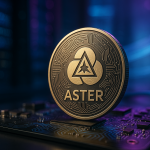Ripple is set to introduce its stablecoin, RLUSD, which will be tied to the US dollar and available on both the XRP Ledger and Ethereum platforms. This new digital currency is designed to be fully backed by cash reserves, ensuring that each RLUSD can be exchanged on a one-to-one basis with the US dollar.
How RLUSD Enhances Transaction Reliability?
To bolster the trustworthiness of RLUSD, Ripple guarantees that it will be completely backed by cash reserves. This backing allows users to convert RLUSD directly to US dollars at the established one-to-one rate. Consequently, the stablecoin will facilitate smooth transactions across both the XRP Ledger and Ethereum networks.
Will Market Fluctuations Affect RLUSD’s Stability?
David Schwartz highlighted potential market fluctuations during RLUSD’s initial launch, indicating that some users might pay more than the market price for RLUSD initially. However, he reassured that these discrepancies would be temporary and corrected swiftly through market arbitrage.
Ripple’s partnership with the Axelar Foundation aims to enhance XRPL’s interoperability with a variety of blockchains. This collaboration is expected to introduce liquidity and foreign exchange applications within the Ripple framework.
- RLUSD is fully backed by cash reserves for reliability.
- It promises low transaction fees through XRP Ledger EVM Sidechain.
- Market imbalances may occur temporarily during the launch phase.
- Ripple’s collaboration with Axelar aims for cross-blockchain compatibility.
Schwartz advises that RLUSD should primarily be utilized for storing and transferring value, rather than as a speculative investment. He anticipates that as the market stabilizes, RLUSD will emerge as a dependable stablecoin choice for users.












